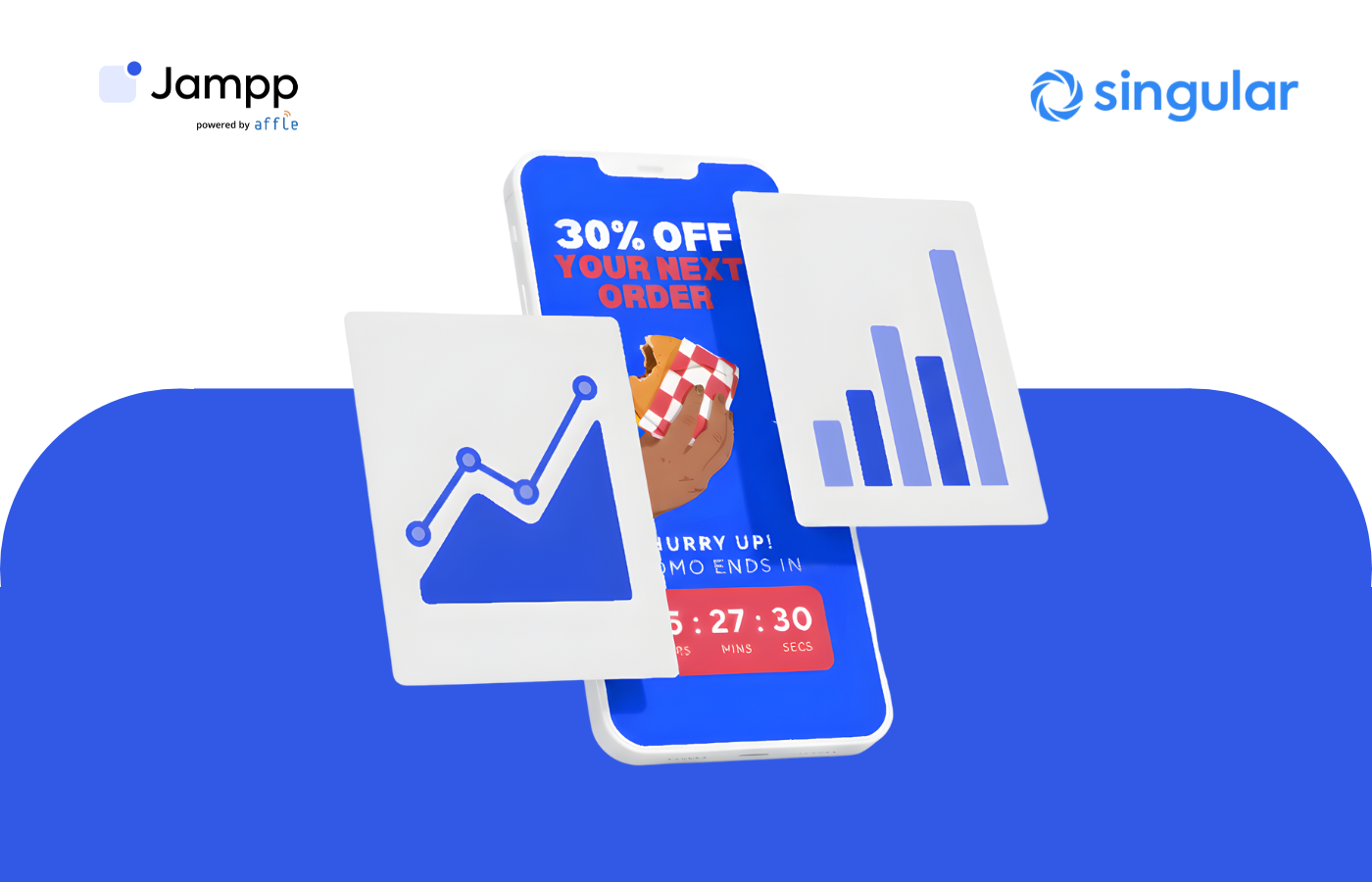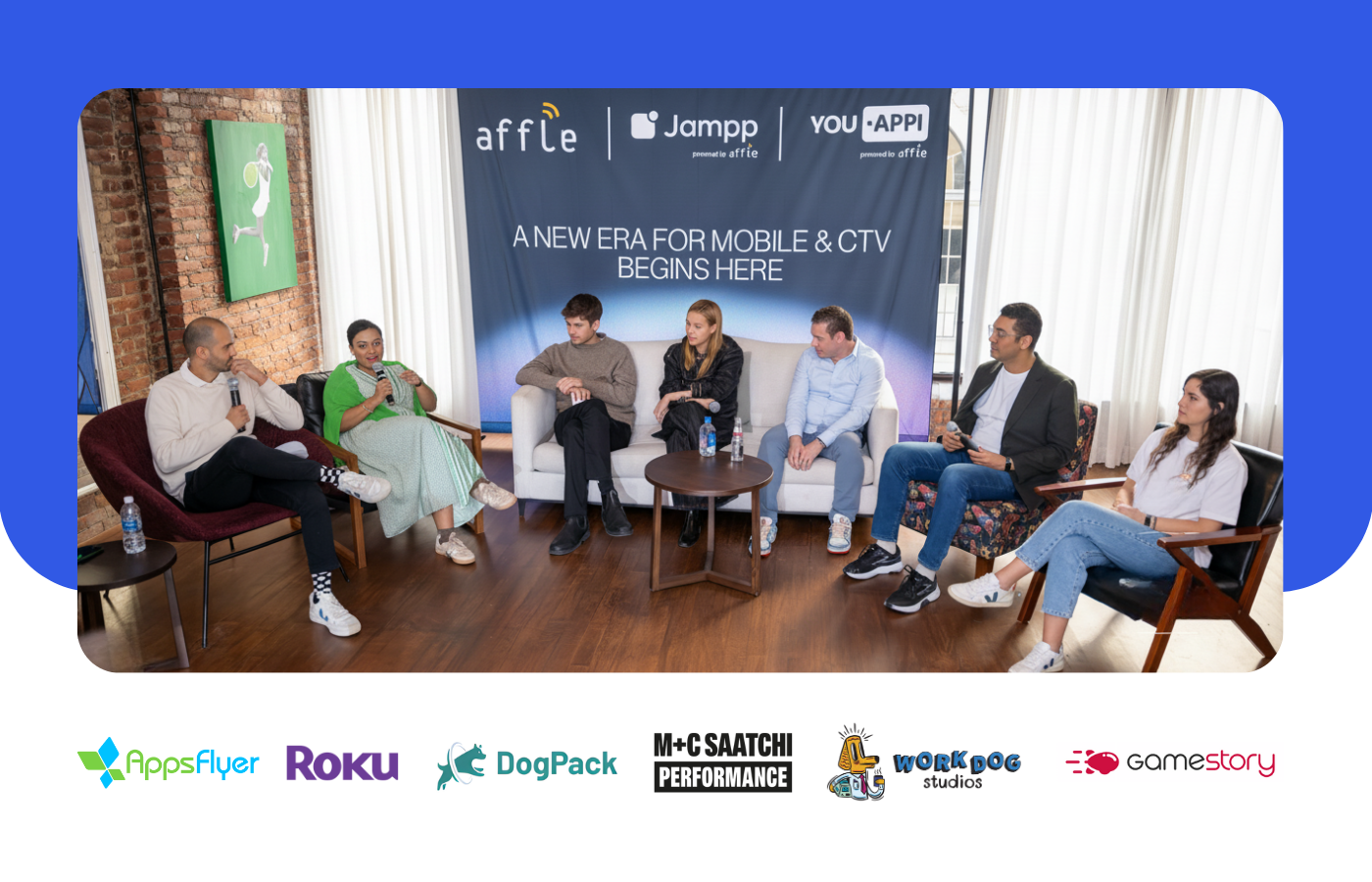App Marketers in Quarantine: Chris Del Bene from Ibotta
In the second installment of App Marketers in Quarantine Answering Questions, we interviewed Ibotta’s Chris Del Bene to learn how his team works to keep users engaged, his take on wfh and how the pandemic will impact our industry in the long term.
May 26, 2020

In the second installment of App Marketers in Quarantine Answering Questions, Julián Rodriguez Hortal from Jampp’s Business Operations team interviewed Ibotta’s Chris Del Bene. Ibotta ("I bought a...") is a free mobile shopping and payments app that has delivered more than $675 million in cumulative cash rewards to its users for making purchases. With more than 35 million downloads, it has become one of the most frequently used shopping apps in the United States.
Chris works in growth marketing at Ibotta learning how to keep people engaged with products and helping them find value. He lives in Denver, CO, frequenting the mountains for a hike on the weekends, yoga on the weekdays, and figuring out what he could eventually make a Udemy course on in the off-hours. Read on to hear his take on working from home and how the pandemic will impact our industry in the long term.
Julián: How are you adapting to WFH? What cadence or advice would you have for staying connected to your team?
Chris: I’m personally fairing ok with WFH. I like that I have the flexibility to break up the traditional 9-5 with mid-day yoga and work later and/or earlier than that typical timeframe. The inability to go anywhere like we normally would has of course not been easy. I’m curious how companies will handle WFH policies once we are out of pandemic times. Our team does a bi-weekly virtual game night playing Codenames, which has been a fun game for us to play to help stay connected.
Julián: A lot of marketers are using the “extra” time to learn more about the industry, what’s one piece of best practice or lesson learned about app marketing you can share?
Chris: There was a recent report I read about retention rates among apps globally. I was surprised to learn that the US has a lower than global average retention rate. It underscores how important retention marketing is to keep new and existing users engaged. On the positive side, the report also mentioned how retention rates have also increased year-over-year.
Julián: How do you think this will affect the industry in the long term?
Chris: Economists have branded this time we are in as The Great Pause. As consumers, I think like in any recession, we are going to change our behavior and re-evaluate what we spend our money on re-defining what is “essential”. The same can be said for marketers. While everybody has likely had a marketing budget cut, or likely will, there is an opportunity for us operating digitally to continue to talk with our core users directly, especially when they may be paying attention to us now more than ever due to more time spent at home.
In the long term, marketers are going to come out of this pause smarter than the past decade when we had once enjoyed economic prosperity. As an app marketer, I’m taking the time to pause and re-evaluate the core of my retargeting program. Testing with more rigor, working on an automation project that will enable long term efficiency, and defining better measurement and incrementality processes. App marketing as an industry is not going anywhere, but similar to how tighter consumer spending forces macroeconomic innovation, marketers are going to force the app marketing industry to innovate in order to meet their demands as spending becomes tighter.
Julián: What changes in user activity do you see the current situation either accelerating or slowing down?
Chris: I think this is an interesting time for brands that were not household names before to cement themselves in peoples’ lifestyles post-quarantine. You hear about apps like Houseparty that have been picking up a lot of activity recently. I remember in college Houseparty was the hot new app for a month and then it went away. Now my parents are using it with their friends to have virtual happy hours. Once the general population begins using these apps, especially people that are not often willing to try new apps and change their behavior—but are now using them out of necessity because of quarantine—these apps will become more of a mainstay.
At Ibotta, we have been watching the explosive growth in online grocery delivery and pickup and have shifted our strategy to make sure our company can serve those people. I don’t see online grocery activity going away entirely after quarantine and some feedback from our users agree that it’s here to stay. The benefits were always there, but now that the general population has begun to consider and use online grocery—out of necessity for some—it could become more habitual as people develop a lifestyle around this way of shopping.
Julián: Whenever budgets are constricted there’s usually a shift from branding to performance and more accountable strategies, does that hold true in this situation? Or are there nuances for large brands to try and brand build during a global crisis?
Chris: We have always been and still are a performance driven marketing organization. Saying that, I would argue our Earth Day campaign this year was a more brand building type of play than what I have observed in the past. While our marketing language was still direct-response focused, the creative skewed heavily towards telling the story of who Ibotta is as a value and mission driven organization and how we are uniquely positioned to support what Earth Day represents. The timing of this had nothing to do with the global crisis and had been planned for months in advance. It has been one of our most successful campaigns to date because the message aligned naturally with our brand—reducing paper coupon waste by going digital—and delivered a direct value to our users by providing more cash back offers. I think there will be more opportunities to do this hybrid approach in the future, but I don’t think that being opportunistic about brand marketing solely during a global crisis is the right approach, nor is turning off brand marketing entirely.
Staying connected
We’ve been conversing with experienced marketers like Chris to hear their take on how the pandemic and subsequent quarantine has impacted the market, and how they are dealing with the current challenges. Do you have any tips, recommendations or insights to share? Let us know!
If you have more questions for Chris, feel free to reach out on Linkedin, or visit his portfolio to see some of his work.
Subscribe to our email newsletter









